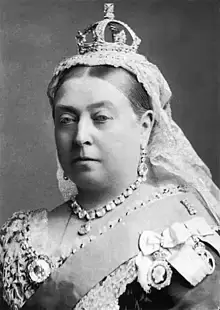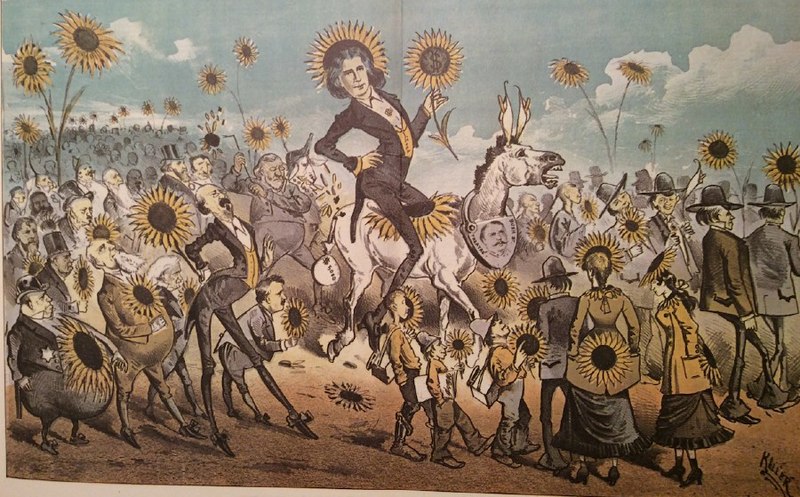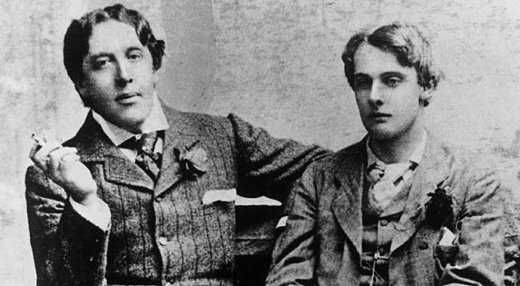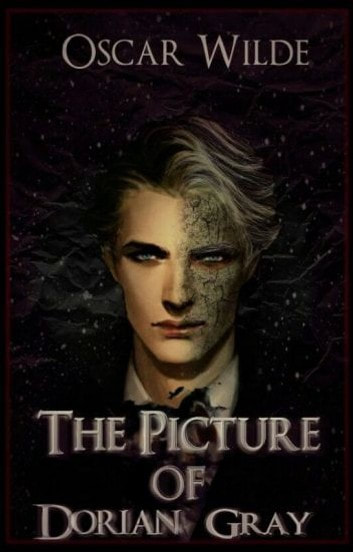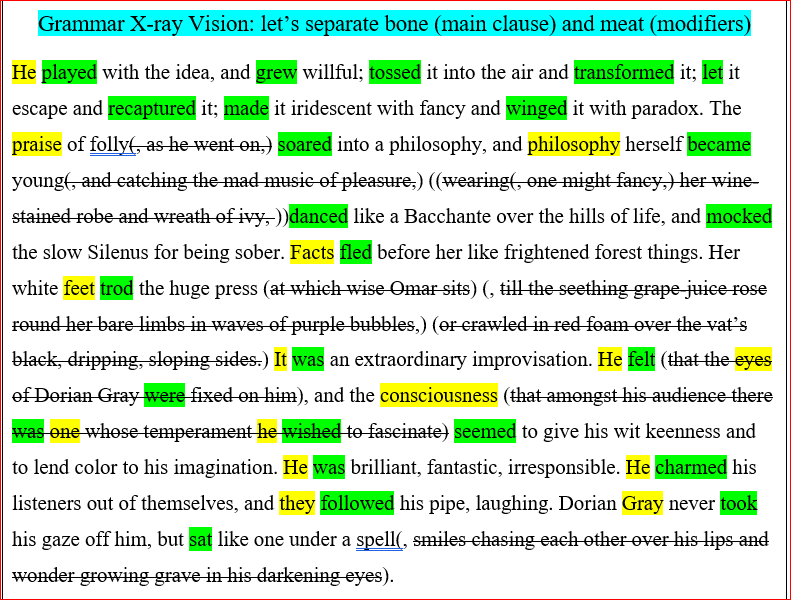The Picture of Dorian Gray (1890-1)
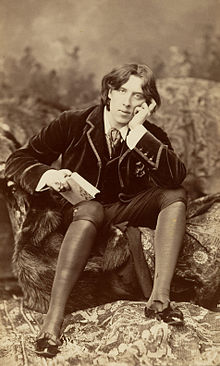
T The Picture of Dorian Gray
A Oscar Wilde
G Novel, Gothic horror, Comedy of Manners
The Full Text:
1. the-picture-of-dorian-gray.pdf
2. Lit2Go.(https://etc.usf.edu/lit2go/113/the-picture-of-dorian-gray/)
Sparknotes:
https://www.sparknotes.com/lit/doriangray/facts/
What is Gothic Literature? PowerPoint: gothic_literature.pptx
The Victorian Era:
https://www.history.org.uk/primary/resource/3871/victorian-britain-a-brief-history
Victorian Morality: https://en.wikipedia.org/wiki/Victorian_morality
A Oscar Wilde
G Novel, Gothic horror, Comedy of Manners
The Full Text:
1. the-picture-of-dorian-gray.pdf
2. Lit2Go.(https://etc.usf.edu/lit2go/113/the-picture-of-dorian-gray/)
Sparknotes:
https://www.sparknotes.com/lit/doriangray/facts/
What is Gothic Literature? PowerPoint: gothic_literature.pptx
The Victorian Era:
https://www.history.org.uk/primary/resource/3871/victorian-britain-a-brief-history
Victorian Morality: https://en.wikipedia.org/wiki/Victorian_morality
The Life and Legacy of the Author
Oscar Wilde, in full Oscar Fingal O’Flahertie Wills Wilde (1854-1900), was an Irish wit, poet, dramatist, and novelist. While The Picture of Dorian Gray (1891) is the only novel Wilde wrote, he also penned such witty plays as Lady Windermere’s Fan (1892) and The Importance of Being Earnest (1895). He is often celebrated as the figurehead of the late 19th-century Aesthetic movement that argued art should serve not morality but beauty. This literary and artistic movement is also known as the art for art’s sake movement. However, he was also vilified for his homosexual relationship with Lord Alfred Douglas and was imprisoned from 1895 to 1897. His artistic aspiration and espousal of decadent life style further aided his downfall.
In May 1897, upon his release from prison, Wilde went to France, hoping to reclaim himself as a writer. However, Whilde managed to complete only one work, The Ballad of Reading Gaol (1898), a poignant indictment of brutal injustice and abysmal conditions of the prison. Despite constant financial problems, he maintained, as George Bernard Shaw said, “an unconquerable gaiety of soul” that sustained him until the last day of his life. He died suddenly of acute meningitis brought on by an ear infection. In his semiconscious final moments, he was received into the Roman Catholic Church, which he had long admired.
Many Victorian authors and readers were fascinated with Gothic horror and the supernatural. For example, both Emily and Charlotte Brontë melded the elements of the supernatural with their narratives in Wuthering Heights (1847) and Jane Eyre (1847).In addition, shortly before Wilde wrote The Picture of Dorian Gray, a Scottish author Robert Louis Stevenson wrote a very enduring Gothic novella about dissociative identity disorder: Strange Case of Dr. Jekyll and Mr. Hyde (1886). Wilde blends Gothic elements and split personality issues in The Picture of Dorian Gray in order to challenge Victorian hypocrisy and at the same time to espouse the aesthetic movement.
To say Oscar Wilde is a controversial figure is a gross understatement: there had been no persona like Oscar Wilde, and after him, there are only pallid imitations of him. Wilde burnt his life's candle to provide a literary antidote for Victorian hypocrisy.
Chapter 1: The Copy of Beauty
|
Chapter 2: DG's Narcissistic Awakening
|
Chapter 3: Lord Henry Wins over Dorian Gray
|
Chapter 4: "Prince Charming" and an Actress
|
Chapter 5
|
Chapter 6
|
Chapter 7
|
Chapter 8
|
Chapter 9
|
Chapter 10
|
Chapter 11
|
Chapter 12
|
Chapter 13
|
Chapter 14
|
Chapter 15
|
Chapter 16
|
Chapter 17: Hedonistic Rechristening
|
Chapter 18: Devil's Darling
|
Chapter 19: The Last Confession
|
Chapter 20: Poetic Justice
|
A 300-word Persuasive Essay Prompt:
Charles Simmons once said, “Live only for today, and you ruin tomorrow.” Do you agree with the statement? Present an explicit statement of your opinion on this topic and provide at least two examples from The Picture of Dorian Gray that support your position.
|
|
|
AP Essay Prompts
A
Many works of literature contain a character who intentionally deceives others. The character’s dishonesty may be intended either to help or to hurt. Such a character, for example, may choose to mislead others for personal safety, to spare someone’s feelings, or to carry out a crime. Choose a novel or play in which a character deceives others. Then, in a well-written essay, analyze the motives for that character’s deception and discuss how the deception contributes to the meaning of the work as a whole.
B
It has often been said that what we value can be determined only by what we sacrifice. Consider how this statement applies to a character from a novel or play. Select a character that has deliberately sacrificed, surrendered, or forfeited something in a way that highlights that character’s values. Then write a well-organized essay in which you analyze how the particular sacrifice illuminates the character’s values and provides a deeper understanding of the meaning of the work as a whole.
AP Sample Essays: student_sample_essays.pdf
A
Many works of literature contain a character who intentionally deceives others. The character’s dishonesty may be intended either to help or to hurt. Such a character, for example, may choose to mislead others for personal safety, to spare someone’s feelings, or to carry out a crime. Choose a novel or play in which a character deceives others. Then, in a well-written essay, analyze the motives for that character’s deception and discuss how the deception contributes to the meaning of the work as a whole.
B
It has often been said that what we value can be determined only by what we sacrifice. Consider how this statement applies to a character from a novel or play. Select a character that has deliberately sacrificed, surrendered, or forfeited something in a way that highlights that character’s values. Then write a well-organized essay in which you analyze how the particular sacrifice illuminates the character’s values and provides a deeper understanding of the meaning of the work as a whole.
AP Sample Essays: student_sample_essays.pdf
The Importance of Being Earnest (1895)
A Comedy of Manners
Why do Cecily and Gwendolen insist her fiancé's name should be Ernest?
What social convention or custom does the play satirize?
To what extent does the playwright challenge and satirize the Victorian double standards and gender expectations?
Identify foreshadowing devices.
What is the dramatic device that resolves the impasse in Act 3?
Research what DEUS EX MACHINA is and discuss the denouement of the play using this concept.
Act 1
|
Act 2
|
Act 3
|
